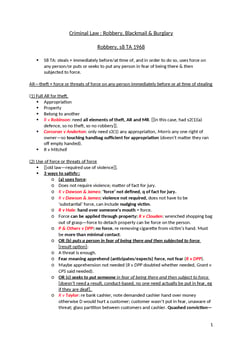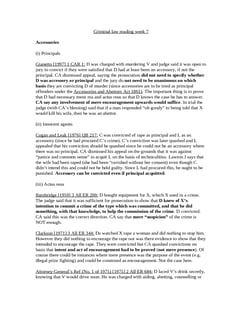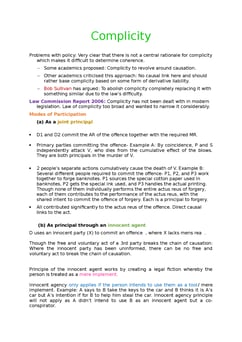Judgement for the case R v Morgan
Table Of Contents
The case involved a Royal Air Force sergeant, Michael Morgan, and three other men who were charged with rape.
Morgan had invited the three men to his house, telling them that his wife enjoyed violent sex and would pretend to resist but that this was part of her fantasy. The men had intercourse with Mrs. Morgan, who resisted and later claimed that she had been raped.
The defendants argued that they genuinely believed they had Mrs. Morgan's consent due to Mr. Morgan's assertions.
The House of Lords ruled that if the defendants had an honest belief that the woman was consenting, even if that belief was unreasonable, they should not be found guilty. The jury convicted all defendants and they appealed.
This case led to significant controversy and criticism, and the law was later changed by the Sexual Offences Act 2003 to include a reasonableness test in determining whether a defendant had a genuine belief in consent.
Lord Hailsham
Said it doesn’t matter if the mistaken belief is based on unreasonable grounds (weaker than ruling in Tolson) since it is still a belief in consent.
The mens rea is not caring whether or not there is consent.
In this case Defendants believed that there was consent.
Lord Cross
Says that an “honest” rather than “reasonable” belief is enough to negate fault and therefore reason for liability.
Lord Simon (Dissenting)
Said that there has to be a balance struck between victim and defendant: on the one hand a reasonable belief, as well as requirement of honesty should exculpate Defendant since he is and ought to be satisfied that the circumstances indicate that he commits no crime.
To leave out “reasonable” would allow people who simply “don’t care” as to their victim’s feelings to be freed from blame. It also exculpates people who don’t bother to make adequate inquiry.
RELATED CASES
For Further Study on R v Morgan

A collection of the best GDL notes the director of Oxbridge Notes (an O...

Criminal Law notes fully updated for recent exams at Oxford and Cambrid...
Need instant answers? Our AI exam tutor is here to help.
Ask questions 🙋 Get answers 📔 It's simple 👁️👄👁️
Our AI is educated by the highest scoring students across all subjects and schools. Join hundreds of your peers today.
Get StartedRelated Product Samples
These product samples contain the same concepts we cover in this case.
| GDL Criminal Law | Sexual Offences Notes (9 pages) |
| Criminal Law | Sexual Offences Notes (49 pages) |
| Criminal law | Sexual Offences Notes (13 pages) |

 Since 2010, Oxbridge Notes has been a trusted education marketplace, supplying high-quality materials from top achievers at universities like Oxford, Cambridge, LSE, Harvard, and Yale.
Since 2010, Oxbridge Notes has been a trusted education marketplace, supplying high-quality materials from top achievers at universities like Oxford, Cambridge, LSE, Harvard, and Yale.